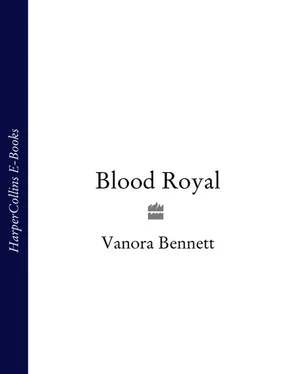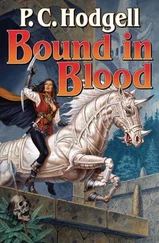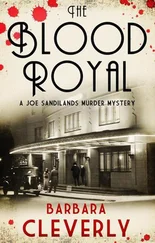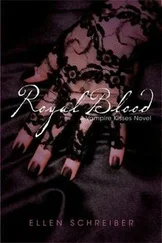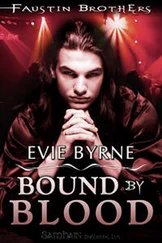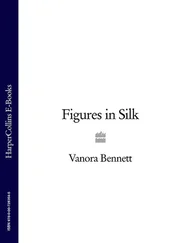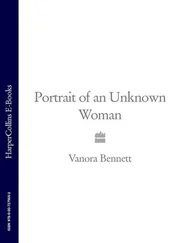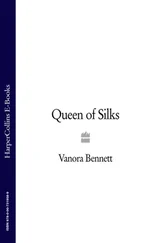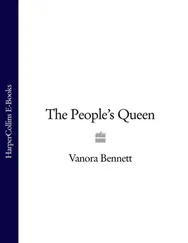All Catherine had on below the houppelande was the dirty shift she’d worn for two days. She’d been tucking up its greying sleeves for hours under the green velvet, to keep them out of sight.
She stopped. There was someone already snuffling under the bedclothes. She held the candle close. Charles, damp and muttering, with his thin boy’s arms and legs rumpling the sheets into a linen whirlpool. She stood at the side of the bed and, with one hand, reached down to straighten the covers and stroke his hair. Then she saw there was a trace of meat grease still on his face. She raised the candle to look round the room. Sure enough, there was a hunk of bread and a slice of beef waiting on a platter under the window. ‘Thank you, Christine,’ she muttered, as she tiptoed towards it.
She put the candle on the table and ate, remembering the anxiety on Charles’ pale little face when he’d slipped out of the audience hall. There was no need for him to worry, she thought, rather sadly. Everyone else knew nothing would come of this marriage offer.
Still … it would be nice to be a queen … to know you’d always be fed and clothed and happy … and safe. She sighed, snuffed out the candle, and got into bed beside Charles.
In pitch darkness, Catherine sat bolt upright in her bed, with her hair wild and her eyes wide in terror. That woke little Charles up too. He sat up; started to shake. He clutched her hand.
She pulled open a corner of her curtains, so they could see out. They waited. They listened. But all either of them could hear, through the thump of their heartbeats, was the doubtful creaking of floorboards, and draughts flapping distant cloth. There was no one there.
‘Nothing,’ Charles whispered stoutly. ‘You must have been dreaming. Go back to sleep.’
He snuggled back down into his quilt. He didn’t want to remember the butchers with thick bare arms and leather jackets smelling of death, with aprons streaked with blood, who’d broken into the Hotel Saint-Paul last summer. Screaming. Sweating and waving sticks and yelling and jeering. Smelling.
Catherine lay down again too, but she couldn’t stop listening or controlling her breathing to keep it quiet, in case someone else was listening. She could have sworn she’d heard the smash of glass again.
When they’d come last summer, they’d broken right into the ballroom. There was nothing to stop them. The Hotel Saint-Paul didn’t have proper battlements. It was just a collection of houses and gardens, bolted together by long galleries – a made-up palace of pleasure gardens, created inside the city wall by her grandfather in times when there were no rebellions. They stayed here still because her father liked it; it reminded him of his own happy childhood. But Catherine’s memories were different.
She’d watched three of the butchers chase one official down the corridor. The official had flung himself at Marguerite and clung to her skirts. She’d thrown her arms round him, but the butchers hardly noticed. They had yanked Marguerite’s arms away and torn her sleeve. They had pulled him off her, sobbing, the terror of a hunted animal on his face. The detail Catherine remembered most clearly was that Marguerite’s headdress had caught on one of the men’s belts. Marguerite had just gone on standing there, with her arms still outstretched and tears streaming down her cheeks and her blonde hair streaming behind her; not even trying to grab for the twin horns of the headdress as it bobbed absurdly on a butcher’s behind.
They all said it wouldn’t happen again. Everyone said the riots had been Marguerite’s father’s fault. They said the Duke of Burgundy had paid the butchers to attack. And he was gone now.
The memory of him still made Catherine shiver. So tall and lean and stooped; and when he looked at you with his cold, hooded eyes you went still, as if he were turning you to stone.
She wrapped her arms round herself. She didn’t believe he’d gone for good. She knew it wouldn’t take long before there was more fighting. They all hated each other too much for anything else.
If only there were stronger walls around the Hotel Saint-Paul.
The thought came unbidden to her mind as she lay down again. If she went to England, where there was peace, she’d never need to be afraid again.
She put her hand on Charles’ shoulder. He was so small, and so thin. She couldn’t leave him.
Trying to still her thoughts, Catherine closed her eyes. When Charles burrowed his small, hot hand trustingly into hers and whispered: ‘Catherine, are you awake? Don’t let them send you to England. Please,’ she squeezed his hand back, and felt guilty for having hoped, for a moment, for escape.
Owain sat at the table in the thin morning light. Upstairs he could hear the excited voices of five-year-old Jacquot and three-year-old Perrette, about to burst down if only the serving girl could persuade them to put their clothes on. No one moved to touch the meal. Owain didn’t like to ask why, though he was hungry. He just drank them all in, all those thin, dark, clever faces, enjoying being with this family that had grown up together. He didn’t remember his own mother. He’d been brought up in packs of boys, being taught by gruff men to hold a sword and a bow. He was unsure how to act in this easy intimacy. He waited, shyly, for enlightenment.
A bang at the courtyard door shocked him, but everyone else relaxed. ‘Jean,’ said Jean, and Jehanette rushed out to open up. A tall blond man in his twenties was there, swinging off his mule; very good-looking, dressed more richly than anyone in the de Pizan or de Castel family, in confident blues and greens, with a sash of red and a touch of gold at neck and wrist; twinkling cheerfully down at Jehanette. He strode in, stopped at the sight of Owain; then bowed and clapped the boy on the back as the explanations about the guest flowed around him.
‘Delighted,’ the blond Jean said, with an easy warmth Owain didn’t know from his years in draughty castle corridors among Englishmen, but remembered from a time further back; a warmth that made Owain feel this man, too, might soon become a friend. Blond Jean raised an eyebrow at dark Jean de Castel; jerked a casual shoulder back outside. ‘Wouldn’t you like to eat before we go?’ said the dark Jean; though he was clearly ready to take his lead from his friend and miss breakfast if that was required.
But blond Jean shrugged and gave in with a laugh. ‘Hungry?’ he said; a man of few words. ‘Well, after all, why not? Let’s.’ He put down the big wooden-backed document case he was carrying and lounged back on a stool. Politely, he picked up a piece of meat with his knife and laid it on a chunk of bread, but he only ate a mouthful. Dark Jean didn’t eat much either; an atmosphere of strain and haste had come upon the family.
When the two young men had gone, a few minutes later, dark Jean taking the mule Christine had had from the palace last night, Christine said: ‘Jean’s working with the other Jean at the chancellery. It’s important for us all that it goes well. Luckily Jean’s friend’s father is Henri de Marle …’ She paused and looked at Owain, who only looked bewildered. ‘The Chancellor of France now,’ she explained, with none of last night’s softness, just haughty astonishment that anyone could fail to know something so vital, ‘since the Duke of Burgundy left Paris; he was president of the Parliament before. A good connection …’
She bustled around, picking things up; preparing for the day; not looking at him. She was putting things in a basket. When Owain plucked up courage to speak again, she took a moment to turn round in the direction of his voice, as if she didn’t really want him there. ‘My Duke is busy with your Queen today,’ he ventured; ‘a hunting expedition. I’m not needed.’ He sensed, from the hard line of her back, that she didn’t want to be reminded that he was the servant of an English duke. ‘So perhaps … I could … go with you, if you’re going into Paris?’ he finished, in a breathless hurry. He was longing to see the city; but he was a little scared of venturing out alone.
Читать дальше
